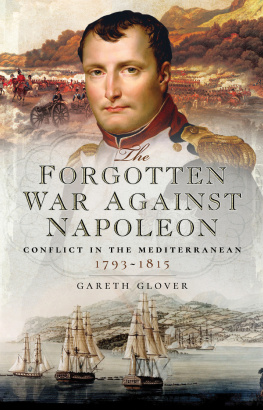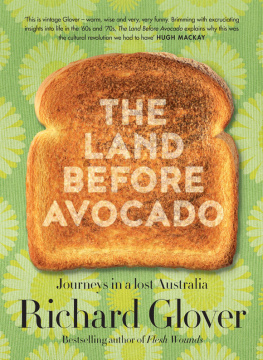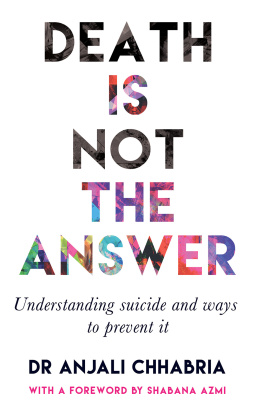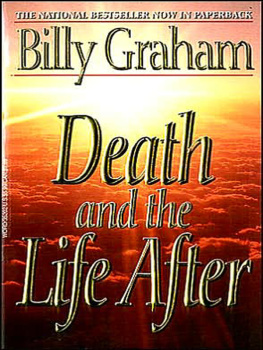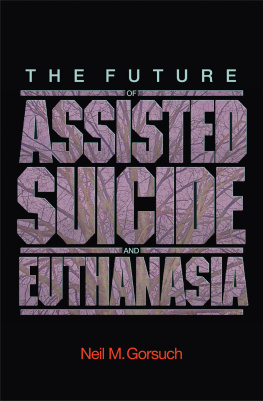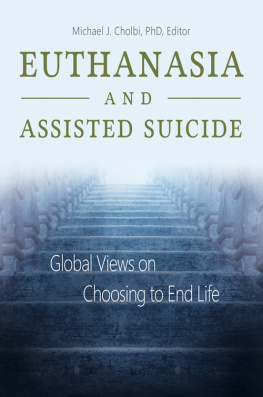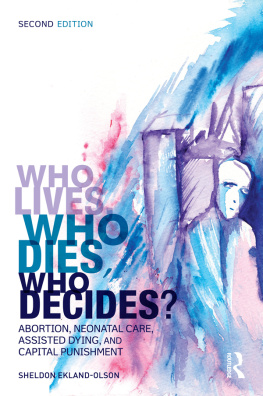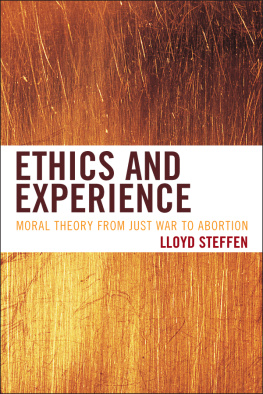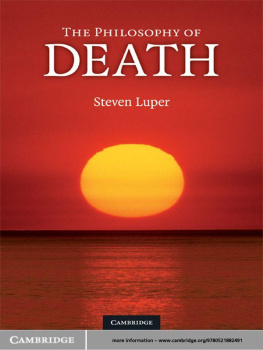Glover - Causing Death and Saving Lives
Here you can read online Glover - Causing Death and Saving Lives full text of the book (entire story) in english for free. Download pdf and epub, get meaning, cover and reviews about this ebook. City: London, year: 1990;2009, publisher: Penguin Books Ltd, genre: Science. Description of the work, (preface) as well as reviews are available. Best literature library LitArk.com created for fans of good reading and offers a wide selection of genres:
Romance novel
Science fiction
Adventure
Detective
Science
History
Home and family
Prose
Art
Politics
Computer
Non-fiction
Religion
Business
Children
Humor
Choose a favorite category and find really read worthwhile books. Enjoy immersion in the world of imagination, feel the emotions of the characters or learn something new for yourself, make an fascinating discovery.

Causing Death and Saving Lives: summary, description and annotation
We offer to read an annotation, description, summary or preface (depends on what the author of the book "Causing Death and Saving Lives" wrote himself). If you haven't found the necessary information about the book — write in the comments, we will try to find it.
The moral problems of abortion, infanticide, suicide, euthanasia, capital punshiment, war and othe life-or-death choices.
Causing Death and Saving Lives — read online for free the complete book (whole text) full work
Below is the text of the book, divided by pages. System saving the place of the last page read, allows you to conveniently read the book "Causing Death and Saving Lives" online for free, without having to search again every time where you left off. Put a bookmark, and you can go to the page where you finished reading at any time.
Font size:
Interval:
Bookmark:
PENGUIN BOOKS
CAUSING DEATH AND SAVING LIVES
Jonathan Glover was born in 1941 and educated at Tonbridge School and Corpus Christi College, Oxford. He is a Fellow and tutor in philosophy at New College, Oxford, and has written Responsibility (1970), What Sort of People Should There Be? (Penguin, 1977) and I: The Philosophy and Psychology of Personal Identity (Penguin, 1989). He is married and has three children.

Penguin Books
PENGUIN BOOKS
Published by the Penguin Group
Penguin Books Ltd, 80 Strand, London WC2R 0RL, England
Penguin Putnam Inc., 375 Hudson Street, New York, New York 10014, USA
Penguin Books Australia Ltd, 250 Camberwell Road, Camberwell, Victoria 3124, Australia
Penguin Books Canada Ltd, 10 Alcorn Avenue, Toronto, Ontario, Canada M4V 3B2
Penguin Books India (P) Ltd, 11 Community Centre, Panchsheel Park, New Delhi 110 017, India
Penguin Books (NZ) Ltd, Cnr Rosedale and Airborne Roads, Albany, Auckland, New Zealand
Penguin Books (South Africa) (Pty) Ltd, 24 Sturdee Avenue, Rosebank 2196, South Africa
Penguin Books Ltd, Registered Offices: 80 Strand, London WC2R 0RL, England
www.penguin.com
First published in Pelican Books 1977
Reprinted in Penguin Books 1990
Copyright Jonathan Glover, 1977
All rights reserved
Except in the United States of America, this book is sold subject to the condition that it shall not, by way of trade or otherwise, be lent, re-sold, hired out, or otherwise circulated without the publishers prior consent in any form of binding or cover other than that in which it is published and without a similar condition including this condition being imposed on the subsequent purchaser
ISBN: 978-0-14-194973-4
To A.M.B. and S.G.B.
Contents
Acknowledgements
Far too many people have influenced this book to be mentioned here. Its topics have been discussed with many graduates and undergraduates studying philosophy, as well as with members of medical groups and with friends having no professional interest in these questions. For several years, Derek Parfit, Jim Griffin and I have given a class in the summer term at Oxford, and there especially I have found the ideas and criticisms put forward helpful and stimulating.
Ted Honderich was a source of most valuable advice and comments. Derek Osborn disapproved in a constructive way of . John Havard read the proofs more effectively than I did.
I am grateful to Stephanie Verhoeven for typing most of the chapters. The Warden and Fellows of New College gave me a sabbatical term during which I finished the book.
Derek Parfit has discussed most of these topics with me over the period of writing, and generously wrote many pages of perceptive comments on an earlier draft. I have learnt a great deal from him. is a bit more imaginative than it otherwise would have been.
My wife Vivette has discussed all these questions with me, and has affected this book more than anyone else. Many details have changed as a result of her comments, but, more important, the whole way I see things is different because of our thinking and talking together.
Preface
This book discusses the moral problems involved in killing and saving lives. It is a philosophical book, but is written for anyone interested in these topics and assumes no familiarity with philosophy.
Some of the topics discussed could in certain ways be handled better by those with experience which I lack. Any totally non-medical person is bound to feel some presumption in suggesting what would be the right decision for a doctor to take in a matter of life or death. Some doctors have great experience of these choices and their outcomes. And there are lawyers with greater understanding of complexities which I merely gesture at in suggesting here and there that reform is desirable. There are sociologists who are better informed about suicide, and criminologists better qualified to discuss the effect of capital punishment. And I have discussed the morality of war despite having only an amateurish interest in the thinking of strategists.
But, after noting these limitations, I am less apologetic about them than might seem appropriate. This is because the questions discussed here are related to each other. Attitudes to suicide and euthanasia, or capital punishment and war, cannot rationally be kept totally separate. And what we say about any of these topics has links in one direction with general philosophical views about why it is wrong to kill, and has implications in another direction for social policies involving either saving lives or risking them. No one is qualified to talk about all these problems, but something is lost if, as a result, each is discussed only out of the context of the others.
There are two limitations about which I feel more regret. I had intended to discuss the relative importance of saving lives in the order of social priorities: the sort of issues raised when economists doing cost-benefit studies wonder how to weight the saving of lives or some increased risk to life. I have read and thought about these questions, but they now seem much more difficult than I expected, and my thinking is still too confused and tentative to include here. The second limitation is the absence of any proper treatment of the problems of killing animals. I am inclined towards the conventional view that animal life is much less important than human life, but my reasons for this when written down have a disconcerting air of intellectual dishonesty, as though they were merely constructed to rationalize my non-vegetarianism. So they are not included here.
My original motives for writing this book were the interest of the questions involved and my own lack of any clear and defensible answers. Now, I have two hopes for the book. One of its aims is to persuade people to change opinions which they already hold. This is because some of the views criticized here cause much unnecessary misery, while others lead to loss of life that could and should be avoided. The conventional view that philosophical discussions are quite remote from having any practical upshot, such as prevention of suffering or loss of life, has very little to be said for it.
The second aim does not entirely harmonize with the first. It is to encourage people to work out views opposed to those argued for here. If discussion of these questions is to get beyond mere exchange of intuitive prejudices, it is necessary to work out fairly systematically the implications of different general approaches. Obviously no opinions on these topics will at once gain general support, and perhaps this is especially true of some of those put forward here. But I would be very pleased if this book helped people who disagree to work out their own views more clearly by contrast.
Many of us find moral problems about killing difficult, and most of those who do not should do. It is often said to be always wrong to take human life, but many people find it hard to say this when confronted with questions of killing set in some specific contexts. Very few people are committed to absolute pacifism. Some support capital punishment. There are several different views about abortion.
If we think that there is any act of killing that can be justified, we are confronted with the problem of drawing boundaries between killings that are permissible and those that are not. In what circumstances, if any, is war justified? When, if ever, is abortion justified? Some people say that it is justified where the baby is likely to be born grossly abnormal, as when the mother has German measles early in her pregnancy. But many of the same people would be appalled at the suggestion that we should kill grossly abnormal children or babies who have already been born. Are we morally justified in drawing this kind of line between foetus and baby, and if so why?
Next pageFont size:
Interval:
Bookmark:
Similar books «Causing Death and Saving Lives»
Look at similar books to Causing Death and Saving Lives. We have selected literature similar in name and meaning in the hope of providing readers with more options to find new, interesting, not yet read works.
Discussion, reviews of the book Causing Death and Saving Lives and just readers' own opinions. Leave your comments, write what you think about the work, its meaning or the main characters. Specify what exactly you liked and what you didn't like, and why you think so.

